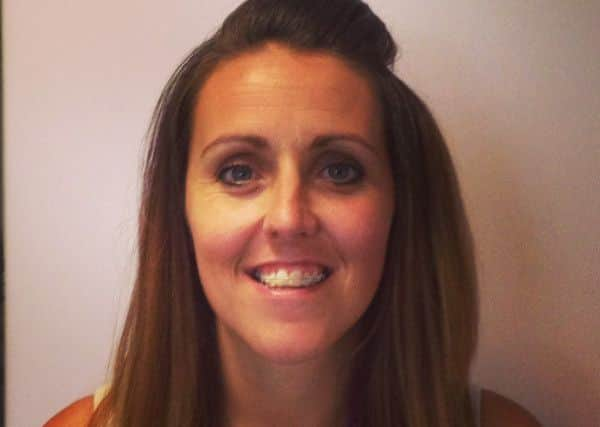Report reveals the struggle to recruit headteachers . . but also how rewarding the job can be


More needs to be done to attract good candidates to fill the posts, according to The Future Leaders Trust, such as urging current school leaders to identify those with the potential to lead schools and help them to develop the skills they need for the job.
A survey conducted last year by the National Governors’ Association (NGA) found that more than two fifths (43 per cent) of schools polled said it was difficult to find good candidates when recruiting senior staff, the report notes.
Advertisement
Hide AdAdvertisement
Hide AdAt the same time, a poll conducted by the Future Leaders Trust in 2015 concluded that more than a quarter of heads questioned (28 per cent) were planning to leave the post within five years, while over half said they did not expect to be a headteacher in 10 years.


Heath Monk, chief executive of The Future Leaders Trust, said: “Fewer people are applying to become heads and that means even fewer people are applying to lead schools that serve our most disadvantaged students. Without effective and inspiring leadership these children are losing out on the education they need. The talent is out there but many people need encouragement to understand they can step up. The solution is for existing heads to spot potential leaders in their schools and inspire them about headship.”
In the report, Emma Knights, NGA chief executive, says not enough is known about the causes of the shortage in school leaders. “Headship can be pressured and potentially lonely, and maintaining a healthy work/life balance can be difficult,” Ms Knights says. “Although a good chair and governing board will support the head, this is the nature of top leadership posts. Is school leadership less attractive because of the data-driven accountability? Or could it be that teachers don’t seem to move around the country as much as other professionals? Has the shortage got anything to do with the fact that teaching is a female-dominated profession but women are under-represented in headship?”
One factor could be teachers’ lack of experience in applying for jobs, Ms Knights suggests.
Advertisement
Hide AdAdvertisement
Hide Ad“Many governors have experience of recruiting in their professional lives, and the first time they are involved in school recruitment can be a surprise: the quality of some applications is shocking.”


The move to create federations of schools and groups of academies run by a single trust could help solve the problem, Ms Knights suggests.
“We need to be more creative and braver: does every school actually need a traditional ‘headteacher’? Groups of schools - federations and multi-academy trusts - give the opportunity for different roles that could help the recruitment problem. Allowing a head of school to lead teaching and learning, without the full business responsibilities of running an organisation, could be an all-round win.”
Ofsted’s chief inspector Sir Michael Wilshaw said: “Heads must encourage their leadership teams to develop, whether through in-school opportunities or external programmes.”
Advertisement
Hide AdAdvertisement
Hide AdThe Future Leaders’ report includes case studies of new head teachers from Yorkshire explaining why they went into the job and how they are finding it.


Rimah Aasim, the head at Worth Valley, is one of the youngest head teachers in Bradford.
She said: “I’ve wanted to become a headteacher since the age of six. Mr Pendlebury, my primary school headteacher, was inspirational, taking the time to get to know us and making school such a lovely place to be. I have vivid memories of going into the school aviary and feeding the budgies at lunchtime. This experience has stuck with me and I want to create similar memorable experiences for everyone at my school.
“Before taking up my post quite a few people told me that headship can be a lonely place. This worried me a little but I decided to carry on because headship had always been my ultimate goal. I am a reflective person, so decided that I had to ensure that this would not happen to me.
Advertisement
Hide AdAdvertisement
Hide Ad“Strong relationships are important so I have put in the effort with all pupils, staff, parents and carers. I specifically thank my colleagues for their work, I take the time to check in on those coming back from sick leave and at Christmas I served dinner to all my staff and students.


“Headship has to work for me and for the young people whose lives will be positively affected by my leadership. During the past year I have been improving the competency of developing others. I’ve always believed in supporting colleagues but our students need us to be the best that we can be. So I’ve had to learn more about supporting my staff and knowing where they are on their learning journey. I’m working to ensure that we are all reflective and understand what we need to do in order to make things even better for our children and their families. Good heads create more leaders.
“An existing strength that I’ve been able to draw upon is Resilience and emotional maturity. There’s been so much to do and as one of the youngest headteachers in Bradford I’ve had to
show others that I can do this job, while changing the community’s perception of the school. But I always use positivity in the face of adversity – and the school has changed so much in just a few months.
Advertisement
Hide AdAdvertisement
Hide Ad“The Future Leaders Trust has been extremely supportive and provided training, time and resources. If I need
anything I know exactly who to contact. As a first-time head it can be daunting but with the Trust’s support I have not felt alone.
“Being a headteacher is the best job in the world for me. I have so much drive to make a difference and know I am affecting young lives and creating citizens of the future. It is a huge but rewarding role.
Working in challenging schools in disadvantaged areas is tough but all children deserve an education no matter where they come from, and it is our duty to provide it. We need to believe in them as many people will not. We must
champion our children.”
Advertisement
Hide AdAdvertisement
Hide AdNichola Smith, the head at Meadstead Primary Academy, in Barnsley, became a head much earlier than she had expected when her predecessor left mid-term. In the report she describes her fears before she took on the role, and how, with support, she overcame them.
She said: “Ever since I was a young girl I have wanted to be a teacher. Many would assume that this was because of my great education; but for me the opposite was the case. The poor experiences that my brother – who has special educational needs – and I had at school mean I’ve committed my career to offering an outstanding education to the children who need it the most.
“Once in the profession I became disillusioned by some of the constraints placed upon teachers, which can stifle creativity and suck the fun out of teaching
and learning. I decided that I wanted to be the one making the decisions. I had three main concerns about headship: would it be career suicide if I didn’t perform well enough? How would it affect my young family? And would headship be lonely?
Advertisement
Hide AdAdvertisement
Hide Ad“First, I learned that being a head is a hard job but not necessarily a lonely one if you build a team that you trust, and who share your vision for the school.
I am a member of the Future Leaders network, and they have been instrumental in how I have created a supportive structure around me.
“Besides, I’m too busy to be lonely. Work-life balance is still something I’m trying to achieve; the nature of headship means you have peaks and troughs of activity, but my children at home need consistency. Surrounding myself with
other school leaders and heads who share the same challenges means that I have support when the going gets tough.
Advertisement
Hide AdAdvertisement
Hide Ad“The fear of career suicide has, for me, evaporated. As a head I have more opportunities for development than ever before, especially through Future Leaders where I meet some of the world’s best practitioners. Headship has helped me to find a new thirst for knowledge and desire for development. I now realise that failure isn’t the end of the road, but a step on the way to improvement.
“Headship was thrust upon me much sooner than I had anticipated due to my head leaving mid-term, so I stepped up and had to overcome these worries on the job.
“During my first months as a Head I’ve had to develop my holding to account and inspiring others competencies quickly – these are key to providing a world-class education for my students, because I have to influence my team positively and make sure we have the same aims. Many conversations in the sector are about helping teachers to reach headship, but Future Leaders recognises the need to go beyond that. It’s not enough to become a head; I want to be a head that helps every child in my school achieve. That has meant mentoring, shared expertise, and ongoing support. Support doesn’t mean leading people by the hand, but empowering them to want to develop themselves.
“My aim is to empower everyone in my school, students and staff alike, to be autonomous – the same way Future Leaders empowered me. I want all my students, including those who are most disadvantaged, to have the opportunity to be the leaders of tomorrow. Who knows – they might be the ones teaching my grandchildren.”